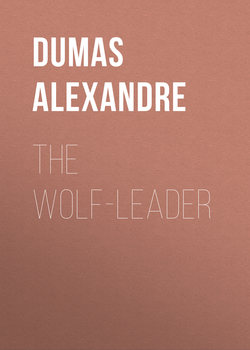Читать книгу The Wolf-Leader - Александр Дюма, Dumas Alexandre - Страница 6
INTRODUCTION
WHO MOCQUET WAS, AND HOW THIS TALE BECAME KNOWN TO THE NARRATOR
V
Оглавление“I must look carefully into this matter” – these words were not said by my father by reason of any belief he had in the truth of Mocquet’s tale about his nightmare; and even the fact of the nightmare being admitted by him, he gave no credence to the idea that it was Mother Durand who had nightmared the keeper. Far from it; but my father was not ignorant of the superstitions of the people, and he knew that belief in spells was still wide-spread among the peasantry in the country districts. He had heard of terrible acts of revenge carried out by the victims on some man or woman who they thought had bewitched them, in the belief that the charm would thus be broken; and Mocquet, while he stood denouncing Mother Durand to my father, had had such an accent of menace in his voice, and had given such a grip to his gun, that my father thought it wise to appear to agree with everything he said, in order to gain his confidence and so prevent him doing anything without first consulting him.
So, thinking that he had so far gained an influence over Mocquet, my father ventured to say:
“But before you make her pay for it, my good Mocquet, you ought to be quite sure that no one can cure you of your nightmare.”
“No one can cure me, General,” replied Mocquet in a tone of conviction.
“How! No one able to cure you?”
“No one; I have tried the impossible.”
“And how did you try?”
“First of all, I drank a large bowl of hot wine before going to bed.”
“And who recommended that remedy? was it Monsieur Lécosse?” Monsieur Lécosse was the doctor in repute at Villers-Cotterets.
“Monsieur Lécosse?” exclaimed Mocquet. “No, indeed! What should he know about spells! By my faith, no! it was not Monsieur Lécosse.”
“Who was it, then?”
“It was the shepherd of Longpré.”
“But a bowl of wine, you dunderhead! Why, you must have been dead drunk.”
“The shepherd drank half of it.”
“I see; now I understand why he prescribed it. And did the bowl of wine have any effect?”
“Not any, General; she came trampling over my chest that night, just as if I had taken nothing.”
“And what did you do next? You were not obliged, I suppose, to limit your efforts to your bowl of hot wine?”
“I did what I do when I want to catch a wily beast.”
Mocquet made use of a phraseology which was all his own; no one had ever succeeded in inducing him to say a wild beast; every time my father said wild beast, Mocquet would answer, “Yes, General, I know, a wily beast.”
“You still stick to your wily beast, then?” my father said to him on one occasion.
“Yes, General, but not out of obstinacy.”
“And why then, may I ask?”
“Because, General, with all due respect to you, you are mistaken about it.”
“Mistaken? I? How?”
“Because you ought not to say a wild beast, but a wily beast.”
“And what is a wily beast, Mocquet?”
“It is an animal that only goes about at night; that is, an animal that creeps into the pigeon-houses and kills the pigeons, like the pole-cat, or into the chicken-houses, to kill the chickens, like the fox; or into the folds, to kill the sheep, like the wolf; it means an animal which is cunning and deceitful, in short, a wily beast.”
It was impossible to find anything to say after such a logical definition as this. – My father, therefore, remained silent, and Mocquet, feeling that he had gained a victory, continued to call wild beasts, wily beasts, utterly unable to understand my father’s obstinacy in continuing to call wily beasts, wild beasts.
So now you understand why, when my father asked him what else he had done, Mocquet answered, “I did what I do when I want to catch a wily beast.”
We have interrupted the conversation to give this explanation; but as there was no need of explanation between my father and Mocquet, they had gone on talking, you must understand, without any such break.
